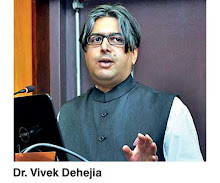With their usual flourish, British tabloids dubbed 19 July as “Freedom Day”, or, more prosaically, the day that the United Kingdom entered stage four of its re-opening plan. This was the day, delayed by four weeks, on which most remaining COVID19 pandemic-related restrictions were lifted in the UK. Some restrictions remain, such as the need for workers to self-isolate if they are pinged by the official contact testing and tracing app, and local bodies continue to impose their own restrictions — such as mandating mask use on the London Underground. But, in the main, most pandemic-era restrictions are gone: mask use is now voluntary, not compulsory (except where otherwise mandated), social distancing (already honoured in the breach rather than the observance for the past many weeks) is a thing of the past, and capacity limits have been lifted at restaurants, concert halls, theatres, and other public places.
There is much that can be criticized in British Prime Minister Boris Johnson’s handling of the pandemic, and there has been much criticism by epidemiologists and other experts of the decision to go ahead with a full re-opening, in the face of sharply rising infections, and, even more worryingly, upticks in hospitalization and deaths, due, in large part, to the ubiquity of the delta variant, which is highly transmissible and has greater immune-escaping properties than the conventional COVID19 virus — meaning that it is possible for those already fully vaccinated to become infected. Additionally, while the full vaccination rate in the UK is about 50 percent, those under 18 have not been vaccinated. Anecdotal evidence, too, suggests that, despite almost half of all Britons now vaccinated, some parts of British inner cities, including London, have vaccination rates less than 30 percent. All of this spells potential trouble.
In light of this, it is striking that in a video message shared on 18 July via Twitter https://twitter.com/BorisJohnson/status/1416764592043315204?s=20 , UK Prime Minister Boris Johnson offered this rationale for the re-opening, in the form of a rhetorical question: “If we don’t do it now, we’ve got to ask ourselves, when will we do it?” As he also remarked, due to the high vaccination rate (but recall the caveats I noted above), new infections have now largely been decoupled from new hospitalizations and increased mortality. A similar logic has underpinned the elimination of pandemic-era restrictions in a number of states of the United States — mostly the “Red” rather than “Blue” states, that is, those with Republican rather than Democratic governments — and the same underlies the sentiment increasingly heard from political conservatives in the Anglo-American sphere, that, post-vaccination, COVID19 should be seen as another, albeit an especially, nasty flu, and cannot be the basis for lockdowns and restrictions without end.
As your columnist has noted on previous occasions, lockdowns and other restrictions intended to flatten the curve of COVID19 infections pose a difficulty very similar to that posed by the deployment of unconventional monetary policies, most notably “quantitative easing” (QE) after the global financial crisis: how and when does one exit? Just as the unwinding of QE was repeatedly delayed in the US and other countries, and then put into reverse by the onset of the global COVID19 pandemic, exit from lockdowns and restrictions have either been open-ended or continually extended in most advanced Western countries.
The difficulty in finding the correct time to exit from restrictions and re-open the economy is, at one level, a matter of the trade-offs between the economic, psychic, and other benefits of earlier re-opening being weighed against the costs of increased infections, hospitalizations, and deaths, similarly due to re-opening, and as predicted by all of the standard “agent-based” epidemiological models (although the deficiency of these class of models, in ignoring behavioural responses by the public, have also been noted by your columnist).
But, this is not the whole story. An additional rationale for prudence comes from political economy considerations. I would hypothesize that, other things equal, if an earlier re-opening goes well, the public is likely, at best, to look perhaps a little more favourably on the incumbent politician who went ahead with it. On the other hand, if things go badly, the incumbent is likely to be severely blamed by the public for a premature re-opening.
This crucial asymmetry in the “payoff matrix” (in the jargon of game theory) to the incumbent politician between the two scenarios will naturally induce caution, likely greater than would be warranted on the basis of a scientific benefit-cost analysis alone. In simpler terms, re-opening earlier with things going well may give a little fillip to the incumbent, but will not guarantee re-election, while things going badly will almost certainly spell disaster at the polls. It is, thus, much safer for a prudent politician, with an eye on the next elections, to be excessively cautious and delay re-opening beyond what would be necessary from the point of view of what is good for society.
A perfect example of this is the continuation of lockdowns and other restrictions in Canada, the caution of whose political leaders contrast sharply with the UK; striking, given the similar full vaccination rates in both countries. There is no doubt that Johnson is taking a big gamble with Freedom Day — you can be sure political leaders the world over will be watching with great interest.
Vivek Dehejia is associate professor of economics and philosophy at Carleton University in Ottawa, Canada.

No comments:
Post a Comment